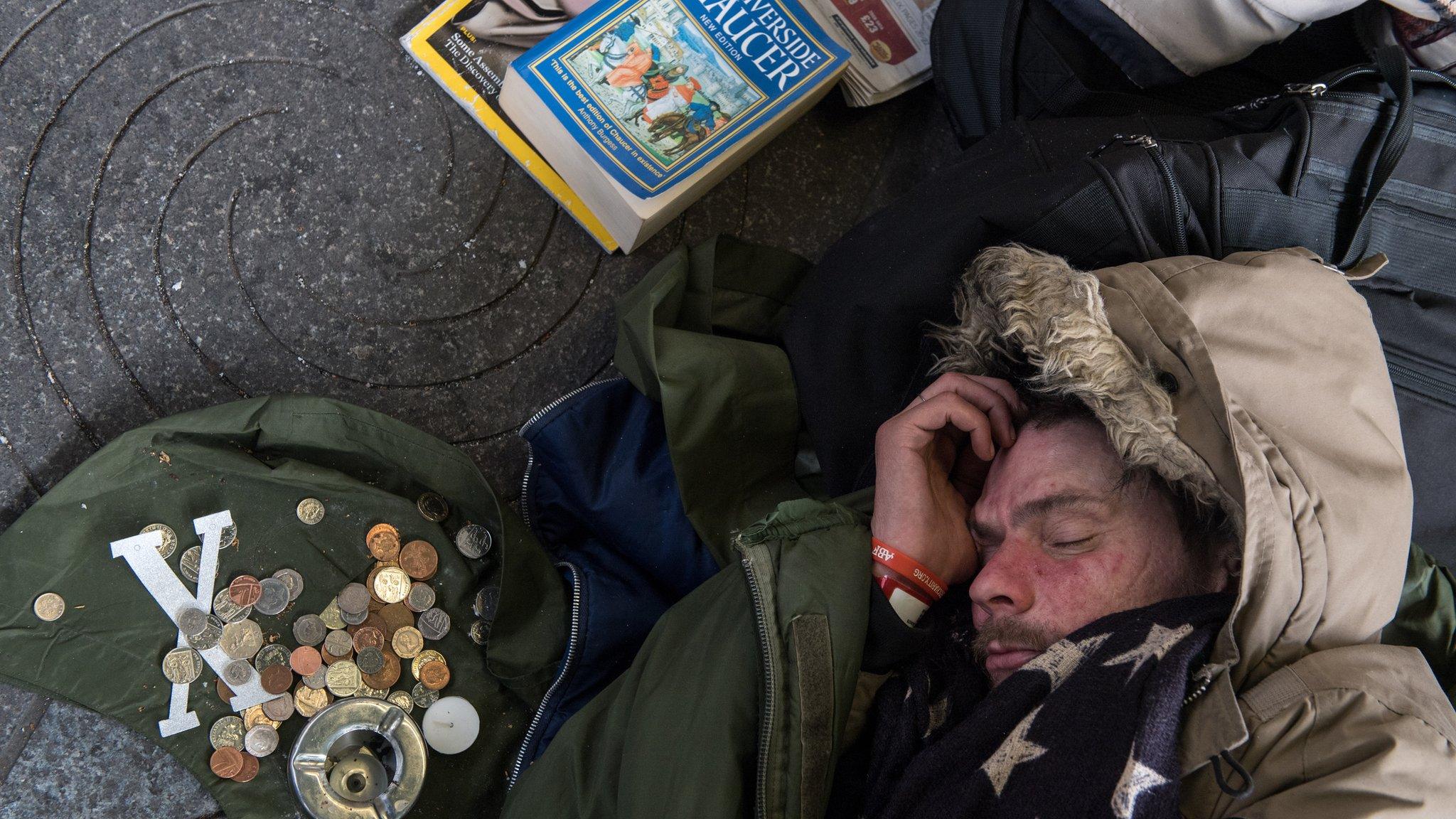Community cover up Bournemouth's 'anti-homeless' benches
- Published
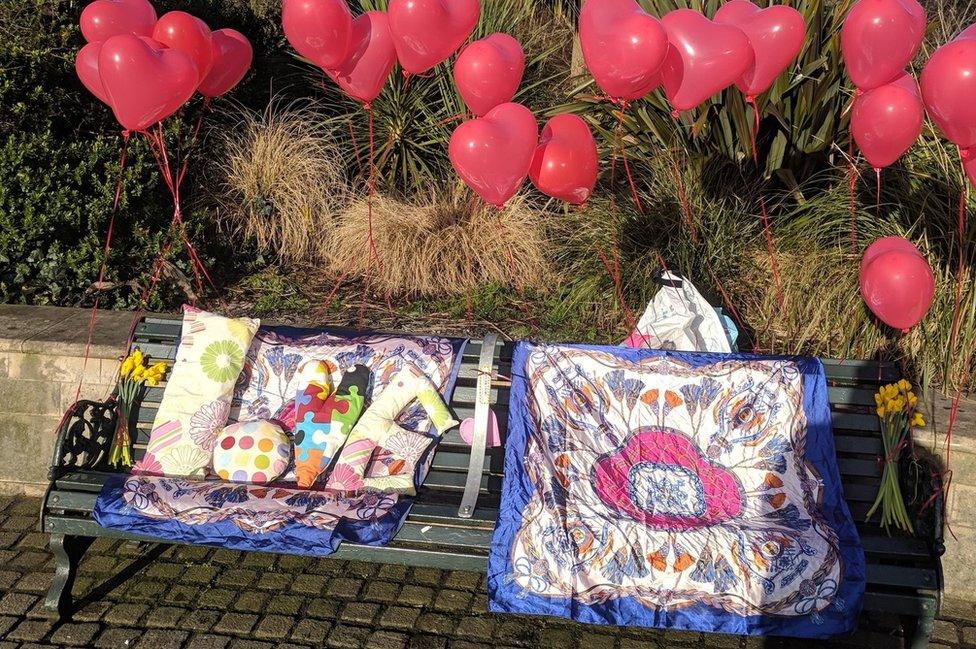
Campaigners against the bars have decorated the benches with cushions and balloons
Campaigners in a seaside resort have festooned benches in protest against "anti-homeless" bars fitted to them.
Twenty eight bar devices have been attached to the benches in Bournemouth by the council, costing £3,650.
The benches have been covered in throws, cushions and decorated with balloons and flowers by those against the metal dividers.
Artist Stuart Semple, who organised the temporary seat decorations, said: "Hostile design is unwanted here."
He added: "We want to live in a town without spikes and bars."
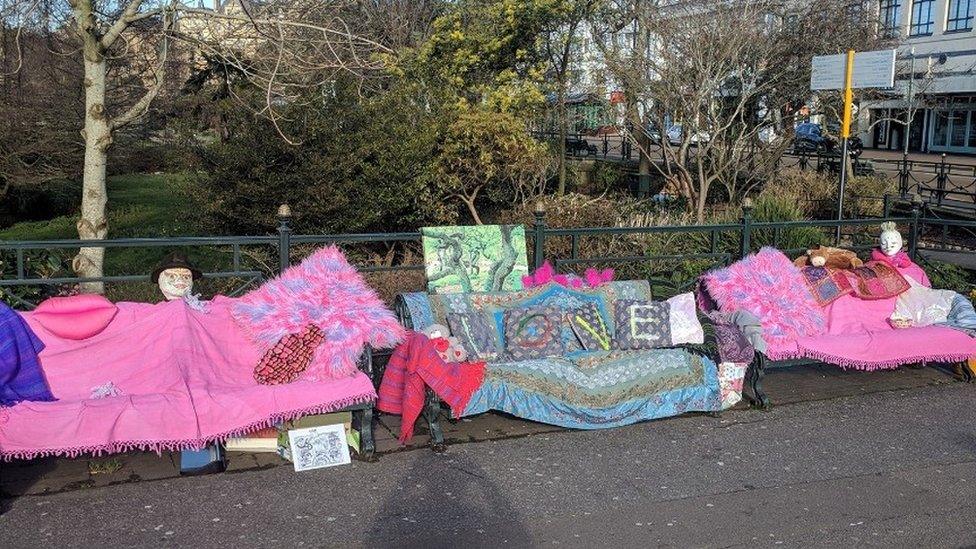
The council said £3,650 was spent fitting the 28 devices to the seating in the town
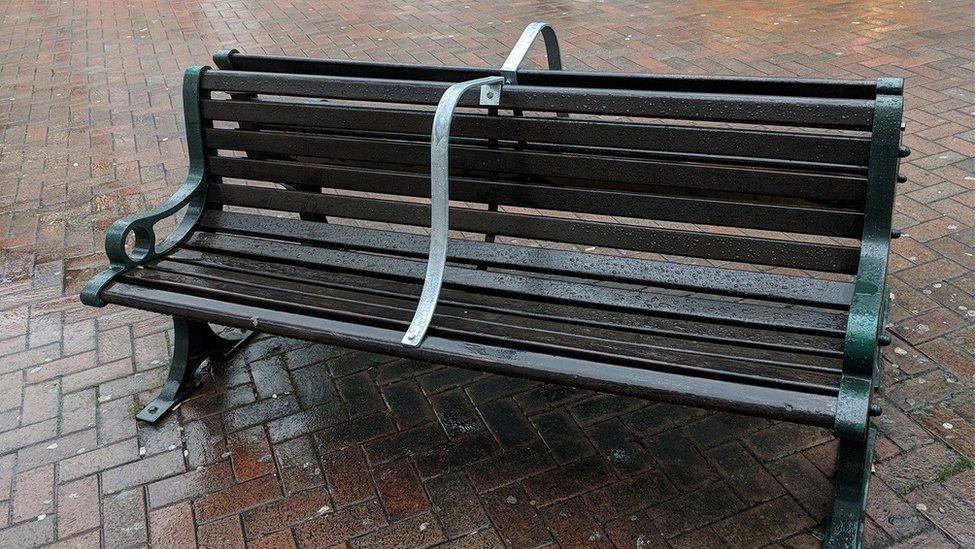
Bars were fitted to the benches to deter people from lying on them
Bournemouth council said it fitted the bars on benches after complaints about rough sleepers.
More than 17,800 people have currently signed a petition online calling for the council to remove the bars from the benches.
On Thursday, rapper Professor Green, who has joined criticism of the bars, visited the seaside resort to remove an 'anti-homeless' bar from a bench.
In a video posted on the rapper's Instagram designer Max McMurdo replaced one of the bars with a larger one to turn the bench into a homeless shelter.
The original bar was later refitted to the bench.
Last year, the rapper fronted a BBC Three documentary investigating rising levels of youth homelessness.
Professor Green removes Bournemouth's 'anti-homeless' bench bars
You might also like:
In June 2016 Bournemouth Borough Council bought one-way train tickets for rough sleepers to help move them out the area.
And in 2015 the authority played Alvin and the Chipmunks songs and bagpipe music from speakers at Bournemouth Coach Station between midnight and 06:00.
The council said the music was part of a wider strategy to deter anti-social behaviour and rough sleeping, which could cause waiting passengers to feel intimidated.
- Published1 February 2018
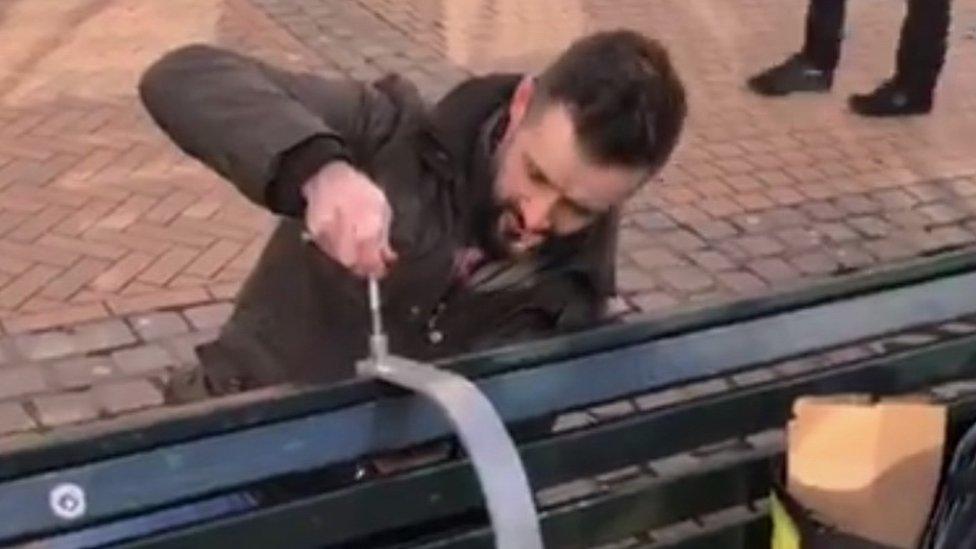
- Published31 January 2018
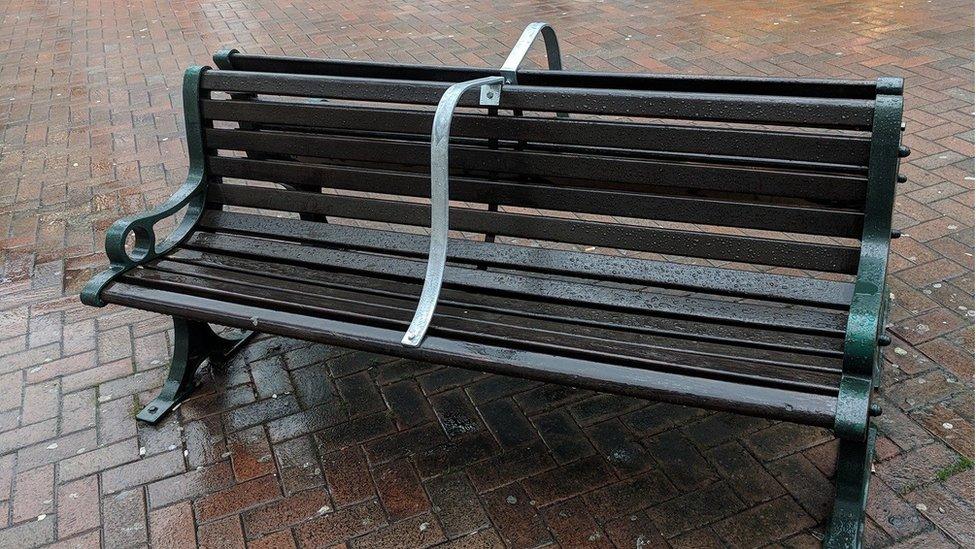
- Published1 February 2018
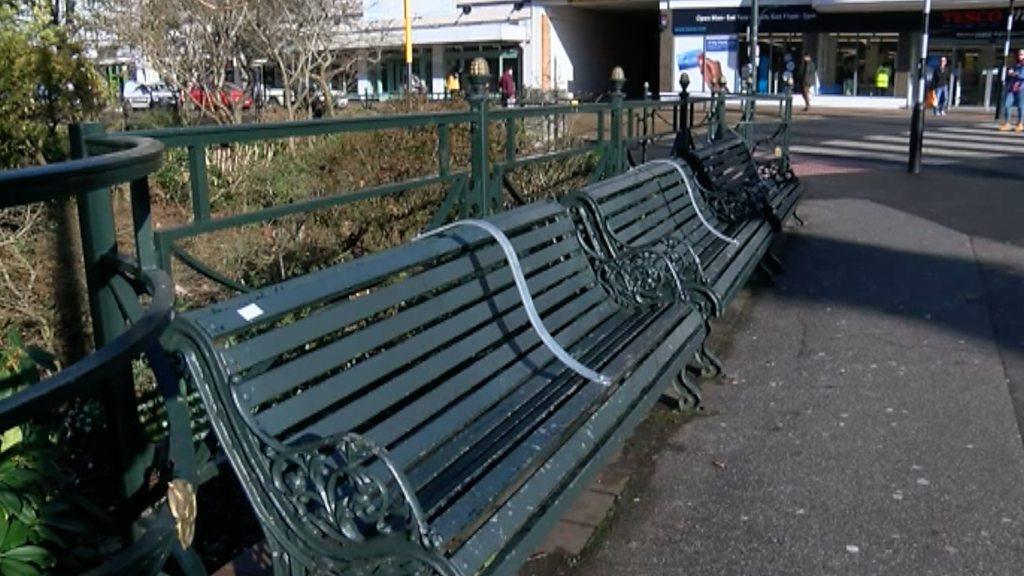
- Published30 January 2018
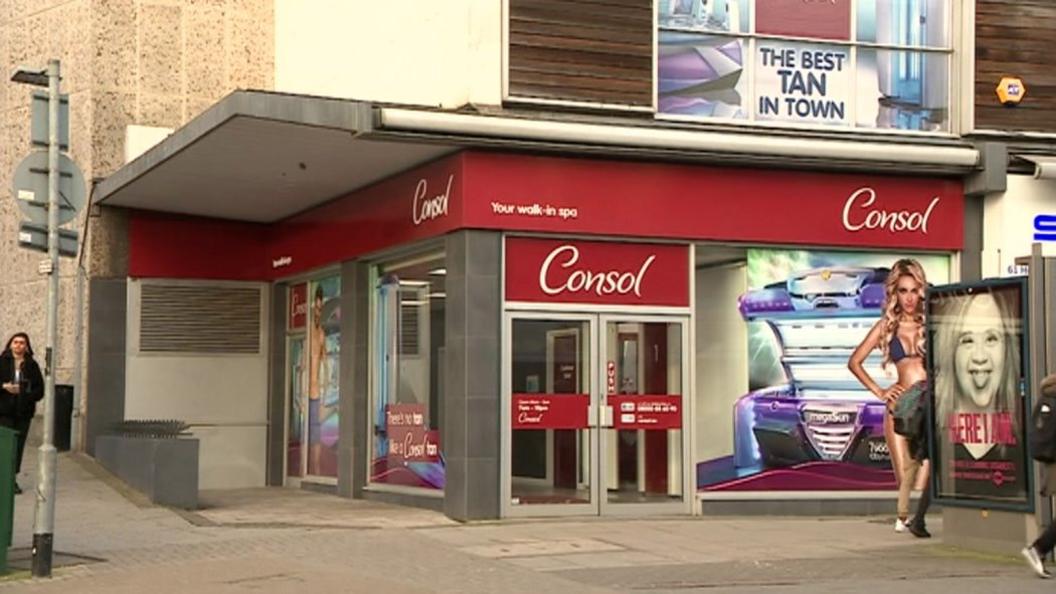
- Published29 January 2018

- Published25 January 2018
